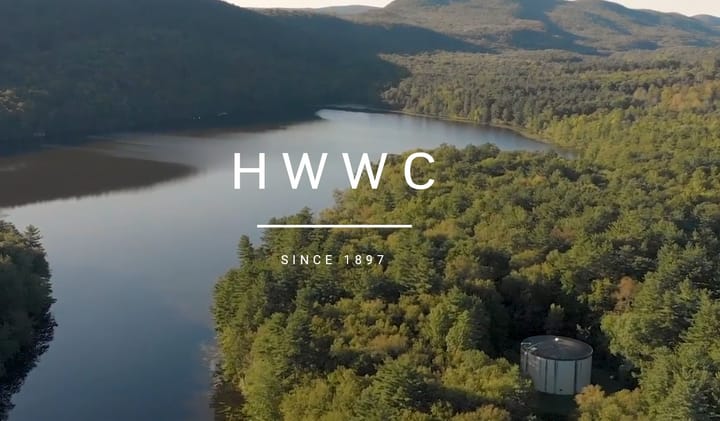Town Meeting, lawsuits, and pending seasonal community changes create an unpredictable environment for the island.
∎ ∎ ∎
By Jennifer Smith
CommonWealth Beacon
THE FATE of short-term rentals on the small, wealthy island of Nantucket is, for now, treading water.
For an island that booms from around 14,000 to over 80,000 residents between the off-season and the so-called “high season,” vacation rentals are an existential issue. Though the rentals are essential to the regional economy, their length and location are also deeply polarizing, setting up clashes between local voters, zoning officials, and the courts that offer a warning to communities grappling with similar debates around the region.
Nantucket, like its Cape and Islands neighbors, sits at the intersection of a few characteristics. It’s an historic region with strict rules around what can be built and where. It’s a summer retreat that attracts beachgoers from around the country. And it’s what’s known in Massachusetts as a “seasonal community,” with about 60 percent of its units in seasonal, recreational, or part-time use.
This sets up a constant clash between those who benefit and profit from the surging rental and vacation home industry and those who argue that year-round residents are being asked to shoulder a boom they didn’t sign up for.
The town is appealing a June ruling from the Massachusetts Land Court that the Nantucket Zoning Board was incorrect when it determined that a property in downtown Nantucket was allowed as a short-term vacation rental under the town’s zoning code. It is the latest turn in a years-long dispute over the rental property, where one neighbor sued another for operating short-term rentals, during which Town Meeting voters have thrown up their hands at several warrant articles over the past years that would clarify the island’s zoning law on short-term rentals.
This spring, Town Meeting voters on the island rejected four different articles related to vacation rentals. Though a majority of voters signed on to one of the articles – a citizen’s petition article that would allow short-term rentals in all residential zoning districts, it did not reach the two-thirds threshold needed to become local zoning law.
Other articles that would restrict the use of properties as short term rentals, require the owners to occupy the parcels for a certain portion of the year, collect data on and restrict the number of short-term rentals, also missed the threshold.
“Tonight brings us to another showdown between two very different visions of a small island facing a very challenging future," said island resident Charity Benz at the Town Meeting, in which only registered Nantucket voters may vote. Those who supported the citizen’s petition “are obsessed with monetizing Nantucket,” Benz said. “However, those who have seen the impact of the transaction economy on Nantucket over the years have a very different perspective. Too much more of everything is simply unsustainable for the island itself and for the taxpayers who are being asked to subsidize its further exploitation.”
The transaction economy Benz referenced is a cycle in which lots are purchased, homes enlarged or built, and those houses then sold off or kept for part-time or rental use. Bigger and bigger homes require more and more of a draw on resources, while public employees find it harder to stay on the island where they work.
As voters shrugged off attempts to codify short-term rental policy over the years, the matter has swirled through the state land court.
In the series of lawsuits brought by a resident challenging a neighboring property’s right to operate as a short-term rental and the town’s decision to allow it, judge Michael Vhay has consistently decreed that short-term rentals of “primary dwellings” are not explicitly allowed under Nantucket’s zoning bylaw unless they are “accessory” uses.
In this specific case, he ruled, the use is not allowed even though town government has long behaved as though short-term rentals are acceptable, and he directed the town to enforce the bylaw as he interpreted it.
The town has filed a motion to stay part of Vhay’s June 6 judgment pending appeal, arguing that this would be extremely disruptive and unusual, because the town has never wielded zoning power against a short-tern rental before and officials believe the use is allowed under local law.
The transaction economy ... is a cycle in which lots are purchased, homes enlarged or built, and those houses then sold off or kept for part-time or rental use.

As Town Meeting warrant efforts stutter and the court case plods along, the island is set to find a few new housing arrows in its quiver this fall.
State-designated seasonal communities like Nantucket will have access, under last year’s sweeping housing bond bill, to a set of tools including year-round housing occupancy restrictions, artist and public employee housing, and allowing tiny homes to be built by-right and used as year-round housing.
A dedicated Seasonal Communities Advisory Council, made up of representatives and stakeholders from vacation-home-rich communities around the state, announced in May recommendations for the state housing office to refine the toolkit. (A virtual engagement session on the regulations was held earlier this week.)
Among the recommendations are how best to consider the amount of part-time and vacation units, as well as the income disparities between area income and area home sale price. Other recommendations are aimed at easing a core part of the seasonal communities requirements: allowing construction on smaller lots than typically allowed by current zoning.
These new seasonal communities requirements won’t be washing up on Cape and Islands shores this season—final regulations are expected to be finalized around September—but the task force is recommending a “use it or lose it” approach to the new tools. If communities don’t implement new requirements like adopting bylaws to allow for undersized lot construction within two years, they say, the state should withdraw its toolkit.
∎ ∎ ∎
This article first appeared on CommonWealth Beacon and is republished here under a Creative Commons Attribution-NoDerivatives 4.0 International License.![]()





